ADVERTISEMENT
Associated Press Sydney Moore and Sabrina Ootsburg were surrounded by hundreds of college athletes at AthleteCon when news broke that the $2.8 billion NCAA settlement had been approved by a federal judge. In a room full of college athletes, they felt like the only two people who understood the gravity of the situation. “I’m about […]
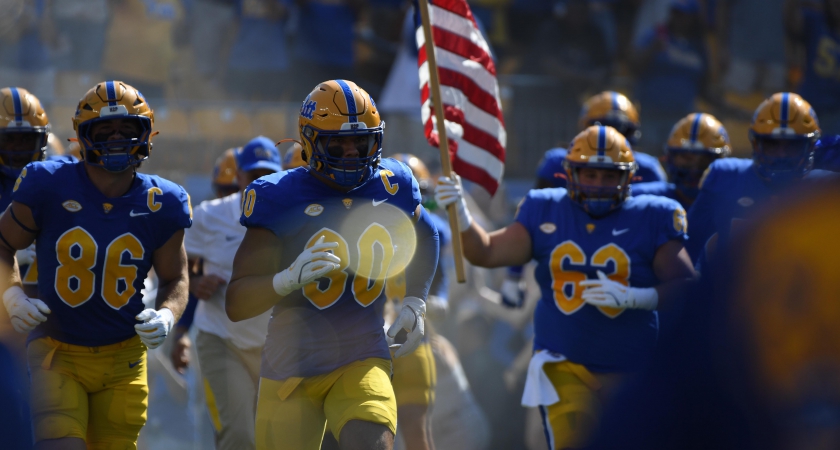

Associated Press
Sydney Moore and Sabrina Ootsburg were surrounded by hundreds of college athletes at AthleteCon when news broke that the $2.8 billion NCAA settlement had been approved by a federal judge. In a room full of college athletes, they felt like the only two people who understood the gravity of the situation.
“I’m about to get paid,” Moore said a Division I football player told her.
“Yes, you are about to get paid, and a lot of your women athlete friends are about to get cut,” she responded.
Moore acknowledged that her response might be a stretch, but the sprawling House settlement clears the way for college athletes to get a share of revenue directly from their schools and provides a lucky few a shot at long-term financial stability, it raises genuine concerns for others.
Schools that opt int will be able to share up to $20.5 million with their athletes over the next year starting July 1. The majority is expected to be spent on high-revenue generating sports, with most projections estimating 75% of funds will go toward football.
So what happens to the non-revenue-generating sports which, outside of football and basketball, is pretty much all of them?
It’s a query that’s top of mind for Ootsburg as she enters her senior year at Belmont, where she competes on track and field team.
“My initial thought was, is this good or bad? What does this mean for me? How does this affect me? But more importantly, in the bigger picture, how does it affect athletes as a whole?” Ootsburg said.
ADVERTISEMENT
“You look at the numbers where it says most of the revenue, up to 75% to 85%, will go toward football players. You understand it’s coming from the TV deals, but then it’s like, how does that affect you on the back end?” Ootsburg asked. “Let’s say 800k goes toward other athletes. Will they be able to afford other things like care, facilities, resources or even just snacks?”
Moore has similar concerns. She says most female athletes aren’t worried about how much – if any – money they’ll receive. They fear how changes could impact the student-athlete experience.
“A lot of us would much rather know that our resources and our experience as a student-athlete is going to stay the same, or possibly get better, rather than be given 3,000 dollars, but now I have to cover my meals, I have to pay for my insurance, I have to buy ankle braces because we don’t have any, and the athletic training room isn’t stocked,” Moore said over the weekend as news of Friday night’s settlement approval spread.
One of the biggest problems, Ootsburg and Moore said, is that athletes aren’t familiar with the changes. At AthleteCon in Charlotte, North Carolina, they said, perhaps the biggest change in college sports history was a push notification generally shrugged off by those directly impacted.
“Athletes do not know what’s happening,” Ootsburg said. “Talking to my teammates, it’s so new, and they see the headlines and they’re like, ‘Ok, cool, but is someone going to explain this?’ because they can read it, but then there’s so many underlying factors that go into this. This is a complex problem that you have to understand the nuances behind, and not every athlete truly does.”
Some coaches, too, are still trying to understand what’s coming.
Mike White, coach of the national champion Texas softball team, called it “the great unknown right now.”
“My athletic director, Chris Del Conte, said it’s like sailing out on a flat world and coming off the edge; we just don’t know what’s going to be out there yet, especially the way the landscape is changing,” he said at the Women’s College World Series in Oklahoma City. “Who knows what it’s going to be?”
Jake Rimmel got a crash course on the settlement in the fall of 2024, when he said he was cut from the Virginia Tech cross-country team alongside several other walk-ons. The topic held up the House case for weeks as the judge basically forced schools to give athletes cut in anticipation of approval a chance to play — they have to earn the spot, no guarantees — without counting against roster limits.
Rimmel packed up and moved back to his parents’ house in Purcellville, Virginia. For the past six months, he’s held on to a glimmer of hope that maybe he could return.
“The past six months have been very tough,” he said. “I’ve felt so alone through this, even though I wasn’t. I just felt like the whole world was out there – I would see teammates of mine and other people I knew just doing all of these things and still being part of a team. I felt like I was sidelined and on pause, while they’re continuing to do all these things.”
News that the settlement had been approved sent Rimmel looking for details.
“I didn’t see much about roster limits,” he said. “Everyone wants to talk about NIL and the revenue-sharing and I mean, that’s definitely a big piece of it, but I just didn’t see anything about the roster limits, and that’s obviously my biggest concern.”
The answer only presents more questions for Rimmel.
“We were hoping for more of a forced decision with the grandfathering, which now it’s only voluntary, so I’m a little skeptical of things because I have zero clue how schools are going to react to that,” Rimmel told The Associated Press.
Rimmel is still deciding what’s best for him, but echoed Moore and Ootsburg in saying that answers are not obvious: “I’m just hoping the schools can make the right decisions with things and have the best interest of the people who were cut.”
___
AP Sports Writer Cliff Brunt contributed.
___
AP college sports: https://apnews.com/hub/college-sports
recommended
The new agency in charge of regulating name, image, likeness (NIL) deals in college sports sent a letter to schools Thursday saying it had rejected deals between players and donor-backed collectives formed over the past several years to funnel money to athletes or their schools. Those arrangements hold no “valid business purpose,” the memo said, […]

The new agency in charge of regulating name, image, likeness (NIL) deals in college sports sent a letter to schools Thursday saying it had rejected deals between players and donor-backed collectives formed over the past several years to funnel money to athletes or their schools.
Those arrangements hold no “valid business purpose,” the memo said, and don’t adhere to rules that call for outside NIL deals to be between players and companies that provide goods or services to the public for profit.
The letter to Division I athletic directors could be the next step in shuttering today’s version of the collective, groups that are closely affiliated with schools and that, in the early days of NIL after July 2021, proved the most efficient way for schools to indirectly cut deals with players.
Since then, the landscape has changed yet again with the $2.8 billion House settlement that allows schools to pay the players directly as of July 1.
Already, collectives affiliated with Colorado, Alabama, Notre Dame, Georgia and others have announced they’re shutting down. Georgia, Ohio State and Illinois are among those that have announced plans with Learfield, a media and technology company with decades of licensing and other experience in college athletics, to help arrange NIL deals.
Outside deals between athlete and sponsor are still permitted, but any worth $600 or more have to be vetted by a clearinghouse called NIL Go that was established by the new College Sports Commission and is being run by the auditing group Deloitte.
In its letter to the athletic directors, the CSC said more than 1,500 deals have been cleared since NIL Go launched on June 11, “ranging in value from three figures to seven figures.” More than 12,000 athletes and 1,100 institutional users have registered to use the system.
But the bulk of the letter explained that many deals could not be cleared because they did not conform to an NCAA rule that sets a “valid business purpose” standard for deals to be approved.
The letter explained that if a collective reaches a deal with an athlete to appear on behalf of the collective, which charges an admission fee, the standard is not met because the purpose of the event is to raise money to pay athletes, not to provide goods or services available to the public for profit.
The same would apply to a deal an athlete makes to sell merchandise to raise money to pay that player because the purpose of “selling merchandise is to raise money to pay that student-athlete and potentially other student-athletes at a particular school or schools, which is not a valid business purpose,” according to the NCAA rule.
Sports attorney Darren Heitner, who deals in NIL, said the guidance “could disproportionately burden collectives that are already committed to spending money on players for multiple years to come.”
“If a pattern of rejections results from collective deals submitted to Deloitte, it may invite legal scrutiny under antitrust principles,” he said.
On a separate track, some college sports leaders, including the NCAA, are seeking a limited form of antitrust protection from Congress.
The letter said a NIL deal could be approved if, for instance, the businesses paying the players had a broader purpose than simply acting as a collective. The letter uses a golf course or apparel company as examples.
“In other words, NIL collectives may act as marketing agencies that match student-athletes with businesses that have a valid business purpose and seek to use the student’s NIL to promote their businesses,” the letter said.
Reporting by The Associated Press.
Want great stories delivered right to your inbox? Create or log in to your FOX Sports account and follow leagues, teams and players to receive a personalized newsletter daily!
recommended

Get more from the College Football Follow your favorites to get information about games, news and more
MANHATTAN, Kan. – A summer update of current and former Wildcats. MLB Will Brennan – OF – Cleveland Guardians Years at K-State: 2017-19 Brennan played 35 games for the Guardians Triple-AAA squad before he was recalled on May 12. In six games with Cleveland, Brennan is slashing .091/.231/.091 over 11 at bats. He was put […]
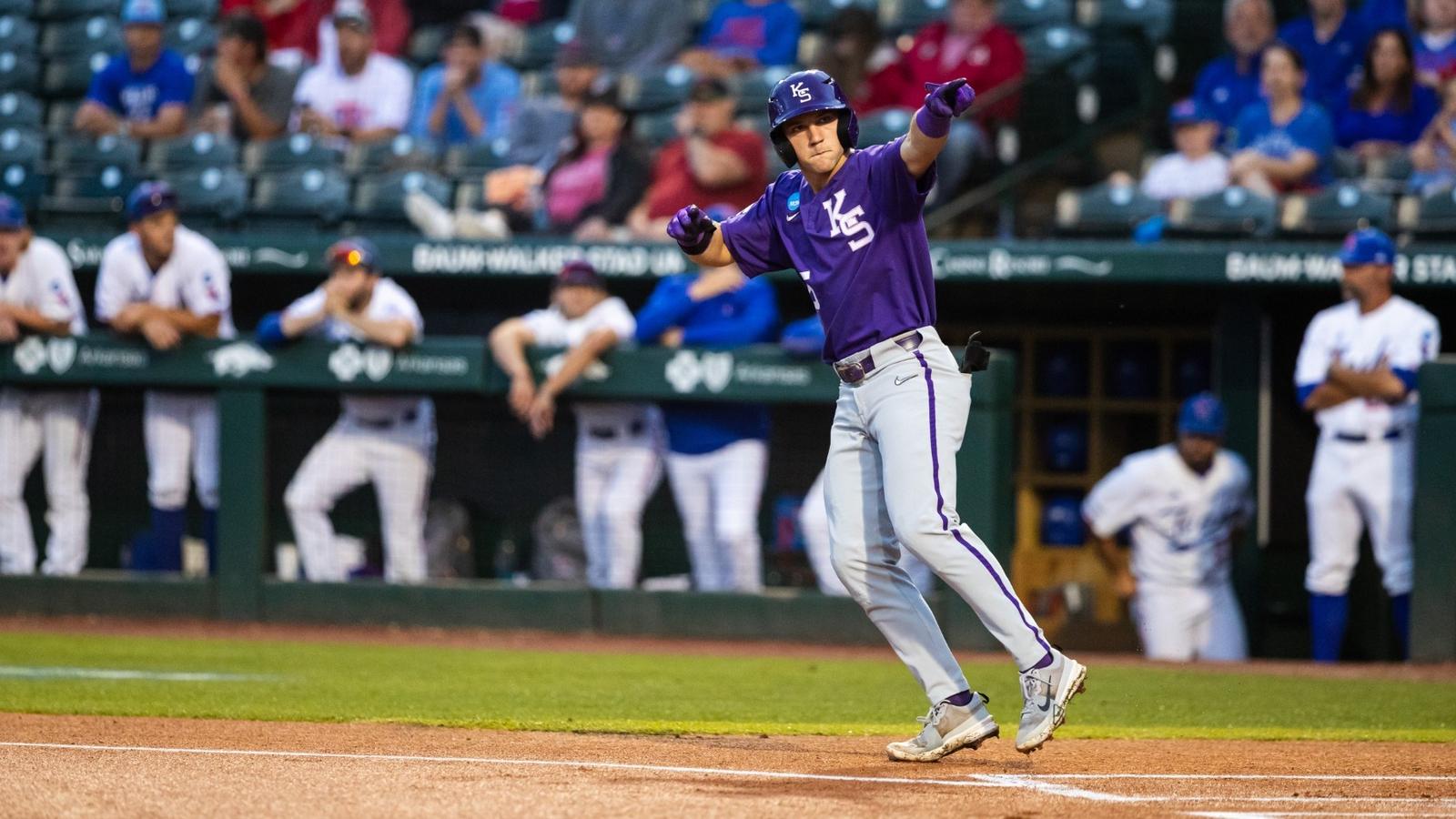
DOUBLE-A
Blake Adams RHP Hartford Yard Goats (CO, AA)
Years at K-State:2022
In 14 starts, Adams is 4-5 with a 5.88 ERA (39 ER, 59.2 IP). He has struck out 60, while registering a 3.53 strikeout-to-walk ratio. Adams recorded a season-high five strikeouts over five scoreless innings on April 9, picking up his first win of the season.
Kaelen Culpepper – INF – Wichita Wind Surge (MIN, AA)
Years at K-State: 2022-24
Following a strong start to the season with High-A Cedar Rapids, the 6-foot shortstop was quickly promoted to Double-A Wichita Surge. A native of Memphis, Tennessee, Culpepper is slashing .349/.431/.460 with an .891 OPS for Wichita. He went 2-for-4 in his Double-A debut and homered in both his third and fourth games.
Brendan Jones – OF – Somerset Patriots (NYY, AA)
Years at K-State: 2022-24
Jones produced a slash line of .236/.349/.362 with 41 hits, including four home runs, before his promotion to Double-A Somerset. In 28 games with the Patriots, Jones is hitting .253 with 11 extra-base hits and 21 RBI. Jones went 2-for-2 on July 9 with a home run and triple, driving in four RBI.
Zach Kokoska – OF – Hartford Yard Goats (CO, AA)
Years at K-State: 2019-21
Kokoska is slashing .189/.275/.400 with 34 hits, including nine home runs in his fifth season in the minors and second in Double-A.
Tyson Neighbors – RHP – San Antonio Missions (SD, AA)
Years at K-State: 2022-24
After a hot start with High-A Fort Wayne where he owned a 1.18 ERA and averaged 15.49 strikeouts per nine innings, Neighbors was promoted to Double-A San Diego on June 11. With the Missions, Neighbors is 2-0 with a 4.50 ERA, striking out 15 in 12 innings with two holds.
HIGH-A
Nick Goodwin IF Vancouver Canadians (TOR, A+)
Years at K-State: 2020-23
Goodwin is in his third season in the minors. In 57 games, the Overland Park product is slashing .231/.359/.418 with 42 hits, including 10 homers. He produced a multi-home run game on June 3 against Tri-City, going 3-for-4 with two home runs and four RBI.
Wesley Moore – LHP – Jersey Shore BlueClaws (PHI, A+)
Years at K-State: 2020-22
Moore has split time between High-A and Double-A in 2025. In High-A with Jersey Shore, he is 0-2 with a 5.63 ERA.
Dylan Phillips – RHP – Tri-City Dust Devils (LAA, A+)
Years at K-State: 2019-22
Phillips has split time between High-A and Triple-A in 2025, making his Triple-A debut on May 11. A native of Omaha, Nebraska, Phillips boasts a 3.92 ERA this season with a 2-3 record and 40 strikeouts over 41 1.3 innings. He fanned a season-high four batters with Triple-A Salt Lake on May 13.
Christian Ruebeck – RHP – Great Lakes Loons (LAD, A+)
Years at K-State: 2022
Ruebeck boasts a 9.43 ERA in 2025 with a 1-2 record, striking out 28 over 21 innings.
Jackson Wentworth – RHP – Vancouver Canadians (TOR, A+)
Years at K-State: 2023-24
In his first season in the pros, Wentworth has a record of 1-4 with a 5.13 ERA. He has struck out 72 batters over 73 2/3 innings in his 16 starts with a 1.47 WHIP. Wentworth logged six innings of one-run ball with a season-high nine strikeouts on June 24 against Tri-City.
SINGLE-A
Brady Day – INF – Clearwater Threshers (PHI, A)
Years at K-State: 2022-24
Day is slashing .255/.341/.340 in his second season with Clearwater, registering 54 hits and driving in 24 RBI. Day has produced nine multi-hit games, including three-hit performances on May 8 and May 10, both against St. Lucie.
REHAB ASSIGNMENT
German Fajardo RHP Modesto Nuts (SEA, A)
Years at K-State: 2020-23
Fajardo, who signed as a free agent with the Mariners organization in 2023, was placed on the 7-day injured list.
Connor McCullough – RHP – Birmingham Barons (CHW, AA)
Years at K-State: 2020-22
McCullough was placed on rehab assignment to the ACL White Sox on May 1.
2025 MLB DRAFTEES
The 2025 MLB Draft will take place in Atlanta, Georgia on July 13-14, 2025, as part of MLB’s All-Star Week festivities. The draft will assign amateur baseball players from the United States, Canada, and Puerto Rico to Major League Baseball teams.
WILDCATS IN SUMMER BALL
| Player | Position | Year in ’26 | Hometown | League | Team |
| Adam Arther | LHP | JR | Altadena, Calif. | Cape | Harwich |
| Tazwell Butler | RHP | R-SR | Sandy Springs, Ga. | Cape | Harwich |
| AJ Evasco | INF/OF | SO | Lincoln, Neb. | NECBL | Newport |
| Austin Haley | INF/RHP | JR | Howe, Texas | Northwoods | St. Cloud |
| Shintaro Inoue | INF | SR | Yamaguchi, Japan | Cape | Harwich |
| Cadyn Karl | OF | R-JR | Edmond, Okla. | Appy | Elizabethton |
| Dee Kennedy | INF | JR | Fort Worth, Texas | Cape | Harwich |
| Donte Lewis | RHP/OF | SO | Pearland, Texas | Appy | Elizabethton |
| Adan Longoria | RHP | JR | Plant City, Fla. | Cal Ripken | Alexandria |
| Chandler Murray | INF | R-FR | Honolulu, Hawaii | Appy | Tri-State |
| Rohan Putz | OF | R-SO | Loch Lloyd, Mo. | Valley | Purcellville |
| Jack Quetschenbach | OF | FR | Futures | Westfield | |
| Miles Smith | RHP | R-SR | Flintville, Tenn. | Appy | Bristol |
| Ty Smolinski | INF | SO | Gretna, Neb. | Appy | Tri State |
By EDDIE PELLS – AP National Writer The new agency in charge of regulating name, image, likeness deals in college sports sent a letter to schools Thursday saying it had rejected deals between players and donor-backed collectives formed over the past several years to funnel money to athletes or their schools. Those arrangements hold no […]

By EDDIE PELLS – AP National Writer
The new agency in charge of regulating name, image, likeness deals in college sports sent a letter to schools Thursday saying it had rejected deals between players and donor-backed collectives formed over the past several years to funnel money to athletes or their schools.
Those arrangements hold no “valid business purpose,” the memo said, and don’t adhere to rules that call for outside NIL deals to be between players and companies that provide goods or services to the general public for profit.
The letter to Division I athletic directors could be the next step in shuttering today’s version of the collective, groups that are closely affiliated with schools and that, in the early days of NIL after July 2021, proved the most efficient way for schools to indirectly cut deals with players.
Since then, the landscape has changed yet again with the $2.8 billion House settlement that allows schools to pay the players directly as of July 1.
Already, collectives affiliated with Colorado, Alabama, Notre Dame, Georgia and others have announced they’re shutting down. Georgia, Ohio State and Illinois are among those that have announced plans with Learfield, a media and technology company with decades of licensing and other experience across college athletics, to help arrange NIL deals.
Outside deals between athlete and sponsor are still permitted, but any worth $600 or more have to be vetted by a clearinghouse called NIL Go that was established by the new College Sports Commission.
In its letter to the ADs, the CSC said more than 1,500 deals have been cleared since NIL Go launched on June 11, “ranging in value from three figures to seven figures.” More than 12,000 athletes and 1,100 institutional users have registered to use the system.
But the bulk of the letter explained that many deals could not be cleared because they did not conform to an NCAA rule that sets a “valid business purpose” standard for deals to be approved.
The letter explained that if a collective reaches a deal with an athlete to appear on behalf of the collective, which charges an admission fee, the standard is not met because the purpose of the event is to raise money to pay athletes, not to provide goods or services available to the general public for profit.
The same would apply to a deal an athlete makes to sell merchandise to raise money to pay that player because the purpose of “selling merchandise is to raise money to pay that student-athlete and potentially other student-athletes at a particular school or schools, which is not a valid business purpose” according to the NCAA rule.
A deal, however, could be approved if, for instance, the businesses paying the players had a broader purpose than simply acting as a collective. The letter uses a golf course or apparel company as examples.
“In other words, NIL collectives may act as marketing agencies that match student-athletes with businesses that have a valid business purpose and seek to use the student’s NIL to promote their businesses,” the letter said.
AP college sports: https://apnews.com/hub/college-sports
Angel Reese called out Robert Griffin III for his take on her not liking Caitlin Clark. Without saying Griffin’s name, Reese went after him, who said he talked to people in her inner circle. “Lying on this app when everybody know the first and last name of everybody in my circle for clout is nastyyyy […]
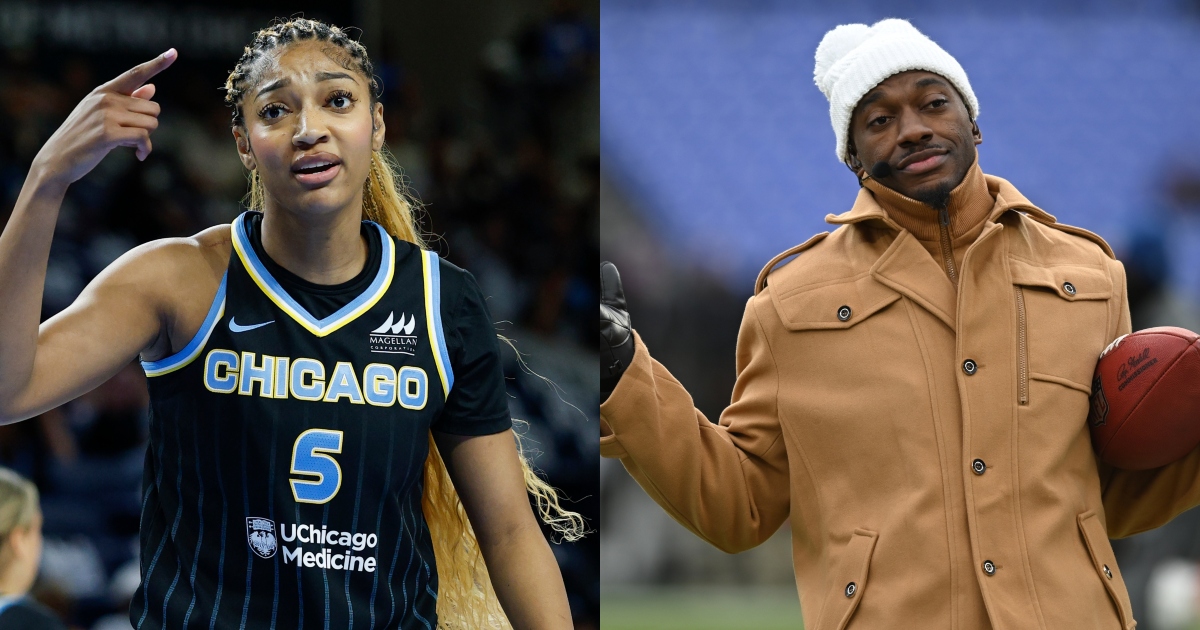
Angel Reese called out Robert Griffin III for his take on her not liking Caitlin Clark. Without saying Griffin’s name, Reese went after him, who said he talked to people in her inner circle.
“Lying on this app when everybody know the first and last name of everybody in my circle for clout is nastyyyy work,” Angel Reese wrote. This came after Griffin called out people who attacked Reese after she was named a cover athlete for NBA 2K26. In the X/Twitter post, the former NFL quarterback mentioned that he spoke to Reese’s inner circle about the Chicago Sky star not liking Cark.
“People in Angel’s inner circle called me and told me I was right and Angel Reese has grown to hate Caitlin Clark because of the media always asking her about Caitlin and being constantly compared to her,” Griffin wrote. “Some people made it about race, but I never did and never will. Instead of becoming the villain in anyone’s story, I decided to just not.”
Robert Griffin III originally shared his take on Angel Reese and Caitlin Clark in May after Clark fouled Reese in the Sky vs. Indiana Fever game. Reese went after the Clark before she was calmed down by the Sky coaches.
“So why do I think Angel Reese hates Caitlin Clark? It could be the fact that Aliyah Boston had to save Angel Reese from ending her career… After the foul, Caitlin Clark put on Angel Reese, and Angel Reese tried to hit her,” Griffin said at the time. “But if it wasn’t for Aliyah Boston putting her arms in the way, Angel Reese would not be playing basketball anymore, because she was going to sucker punch Caitlin Clark. Now, you tell me a time when you’ve seen somebody get fouled on a basketball court in a professional league, where they try to almost sucker punch somebody that they were friends with, because of a hard foul?”
Reese and Clark have been competing against each other since they were in college. Reese played at LSU, and Clark played at Iowa. Reese and LSU defeated Clark and Iowa in the 2023 National Championship Game, and the two went on to enter the WNBA in 2024. Clark was named WNBA Rookie of the Year last season, and Reese finished second in Rookie of the Year voting.
The idea of expanding the tournament picked up steam in the spring when NCAA President Charlie Baker said it could add value. WASHINGTON — The committees for men’s and women’s Division I basketball met this week to discuss possible expansion of the March Madness tournaments, but made no immediate decisions or recommendations. “The still viable […]

The idea of expanding the tournament picked up steam in the spring when NCAA President Charlie Baker said it could add value.
WASHINGTON — The committees for men’s and women’s Division I basketball met this week to discuss possible expansion of the March Madness tournaments, but made no immediate decisions or recommendations.
“The still viable outcomes include the tournaments remaining at 68 teams or expanding the fields to either 72 or 76 teams in advance of the 2026 or 2027 championships,” Dan Gavitt, the NCAA senior vice president of basketball, said in a statement Thursday.
The idea of expanding the tournament picked up steam in the spring when NCAA President Charlie Baker said it could add value and that he’d like to see the issue resolved in the next few months.
He said the NCAA has had “good conversations” with TV partners CBS and Warner Bros., whose deal runs through 2032 at the cost of around $1.1 billion a year. Baker also mentioned increasingly difficult logistics involved with adding teams to what is now known as the “First Four” — a series of four games played on Tuesday and Wednesday of the first week to place four teams into the 64-team bracket.
Though there has been no concrete plan for how expansion would work, speculation has centered on bringing more at-large teams, likely from major conferences, into the 64-team bracket. Such a move that would come at the expense of champions of lower-level conferences.
Currently, two of the First Four games involve 16 seeds — teams that automatically qualify by winning lower-ranked conferences — while two more involve at-large teams often seeded 11 or 12. For instance, in 2021, UCLA made the Final Four as an 11 seed that also played in the First Four.
“I don’t accept that that model just continues in the future,” Southeastern Conference commissioner Greg Sankey said at league meetings in May.
He used the example of North Carolina State advancing to the Final Four as an 11 seed in 2023 as how bubble teams from big conferences can make long runs in the tournament.
“You could go ask my colleagues in the (automatic qualifier) conferences what should happen, and I’m certain they want that split to continue for life,” Sankey said. “But you’ve got some really, really good teams … that I think should be moved into the tournament.”
Any recommendation for expansion would have to be approved by the NCAA’s Division I board, which next meets in August.
AP college basketball: https://apnews.com/hub/ap-top-25-college-basketball-poll and https://apnews.com/hub/college-basketball
The new agency in charge of regulating name, image, likeness deals in college sports sent a letter to schools Thursday saying it had rejected deals between players and donor-backed collectives formed over the past several years to funnel money to athletes or their schools. Those arrangements hold no “valid business purpose,” the memo said, and […]

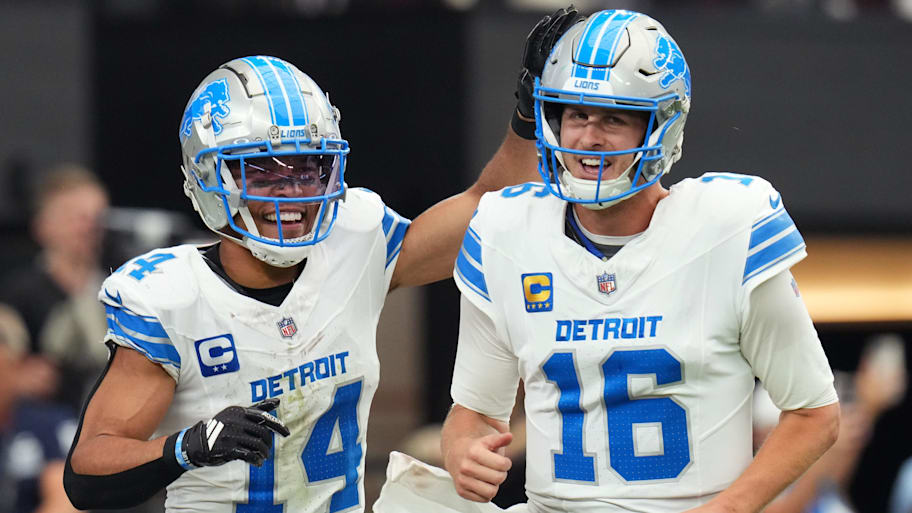

The new agency in charge of regulating name, image, likeness deals in college sports sent a letter to schools Thursday saying it had rejected deals between players and donor-backed collectives formed over the past several years to funnel money to athletes or their schools.
Those arrangements hold no “valid business purpose,” the memo said, and don’t adhere to rules that call for outside NIL deals to be between players and companies that provide goods or services to the general public for profit.
The letter to Division I athletic directors could be the next step in shuttering today’s version of the collective, groups that are closely affiliated with schools and that, in the early days of NIL after July 2021, proved the most efficient way for schools to indirectly cut deals with players.
Since then, the landscape has changed yet again with the $2.8 billion House settlement that allows schools to pay the players directly as of July 1.
Already, collectives affiliated with Colorado, Alabama, Notre Dame, Georgia and others have announced they’re shutting down. Georgia, Ohio State and Illinois are among those that have announced plans with Learfield, a media and technology company with decades of licensing and other experience across college athletics, to help arrange NIL deals.
Outside deals between athlete and sponsor are still permitted, but any worth $600 or more have to be vetted by a clearinghouse called NIL Go that was established by the new College Sports Commission.
In its letter to the ADs, the CSC said more than 1,500 deals have been cleared since NIL Go launched on June 11, “ranging in value from three figures to seven figures.” More than 12,000 athletes and 1,100 institutional users have registered to use the system.
But the bulk of the letter explained that many deals could not be cleared because they did not conform to an NCAA rule that sets a “valid business purpose” standard for deals to be approved.
The letter explained that if a collective reaches a deal with an athlete to appear on behalf of the collective, which charges an admission fee, the standard is not met because the purpose of the event is to raise money to pay athletes, not to provide goods or services available to the general public for profit.
The same would apply to a deal an athlete makes to sell merchandise to raise money to pay that player because the purpose of “selling merchandise is to raise money to pay that student-athlete and potentially other student-athletes at a particular school or schools, which is not a valid business purpose” according to the NCAA rule.
A deal, however, could be approved if, for instance, the businesses paying the players had a broader purpose than simply acting as a collective. The letter uses a golf course or apparel company as examples.
“In other words, NIL collectives may act as marketing agencies that match student-athletes with businesses that have a valid business purpose and seek to use the student’s NIL to promote their businesses,” the letter said.


Pet fitness and wellness trends for a healthier and happier dog


WAC to Rebrand to UAC, Add Five New Members in 2026


Why Cosmetics are Making Up for Lost Time in Women’s Sports
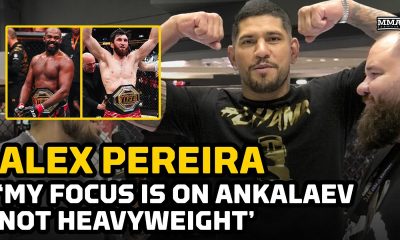

Alex Pereira responds to rumors of UFC heavyweight title fight with threatening message


Alabama Basketball


Francis Ngannou sends Dana White a message following Jon Jones' shock UFC retirement


A new era of Dickinson hockey begins behind the bench – The Dickinson Press
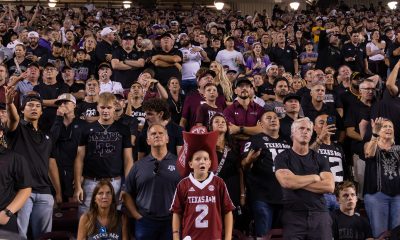

SEC Conference imposing a fine will create the opposite effect.


NASCAR This Week – Patriot Publishing LLC


Florida assault survivor shares hope for change with new mental health law